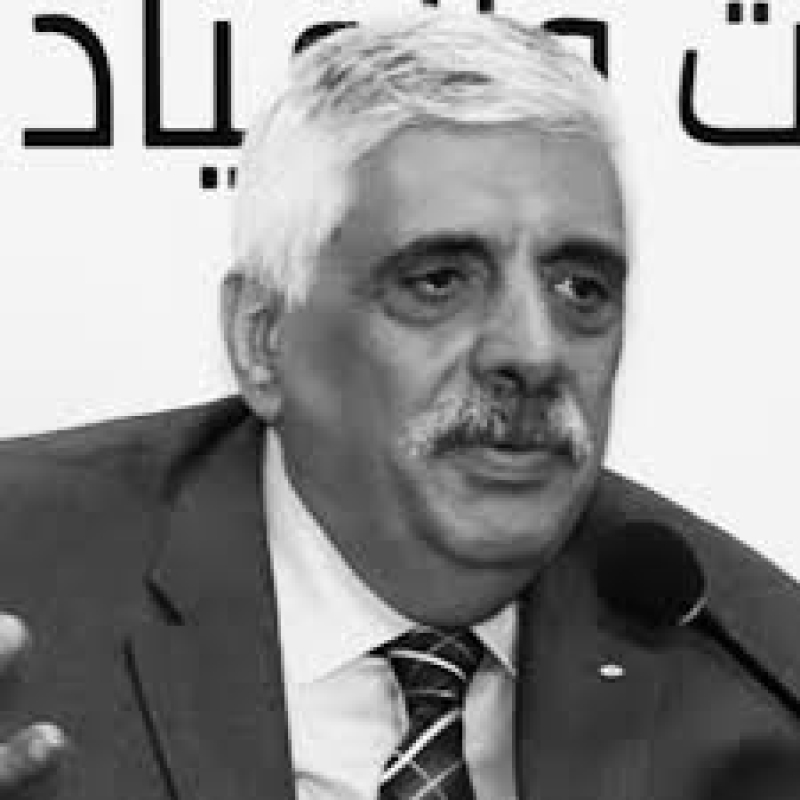- Security Council Divided on United States' Venezuela Action |
- Over 1.53m voters register for postal balloting: Shafiqul Alam |
- Bangladesh Bank to liquidate 9 NBFIs in financial sector reforms |
- Govt Moves to Clear Tk20,000cr Dues to Avoid Summer Outages |
- Maduro Pleads Not Guilty in US Court, Claims Presidency |
Silence on Israel’s massacres of journalists is dangerous to all

Daoud Kuttab
Award-winning Palestinian journalist
A December 26 press statement by the Israeli army attempted to justify a war crime. It unabashedly admitted that the military incinerated five Palestinian journalists in a clearly marked press vehicle outside al-Awda Hospital in the Nuseirat refugee camp, central Gaza Strip.
The five victims were Ibrahim Sheikh Ali, Faisal Abu al-Qumsan, Mohammed al-Ladaa, Fadi Hassouna, and Ayman al-Gedi. Ayman had arrived at the hospital with his wife who was about to give birth to their first baby; he was visiting his colleagues in the vehicle when it was struck. His baby boy was born several hours later and now carries the name of his father who was not allowed to live long enough to celebrate his birth.
The Israeli army statement claimed that the five Palestinians were “operatives posing as journalists” and that they disseminated “combat propaganda” because they worked for Al-Quds Al-Youm TV, affiliated with the Palestinian Islamic Jihad movement. The Israeli army made no claims that they were actually carrying weapons or involved in any armed action.
Many Western publications quoted the Israeli army statement as if it was an objective position and not propaganda whitewashing a war crime. They failed to clarify to their audiences that attacking journalists, including journalists who may be accused of promoting “propaganda”, is a war crime; all journalists are protected under international humanitarian law, regardless of whether armies like their reporting or not, reports AL Jazeera.
The Geneva Conventions Article 79 of the Additional Protocol states that all journalists “engaged in dangerous professional missions in armed conflict areas shall be considered civilians … [and] shall be protected […] and without prejudice to the right of war correspondents accredited to the armed forces”.
Completely disregarding these provisions of international law, the Israeli army has gone on a killing spree of Palestinian journalists over the past 15 months. According to the Gaza Government Media Office, 201 have been killed in Gaza since October 7, 2023. Other counts put the number at 217.
According to the New York-based Committee to Protect Journalists (CPJ), some 138 Palestinian journalists were killed in Gaza and the occupied West Bank between October 7, 2023 and December 31, 2024. The organisation counted the five victims of the Israeli army’s attack on December 26 in the tally.
The Paris-based Reporters Without Borders described the Israeli killing of journalists as “an unprecedented bloodbath” and Palestine as “the most dangerous country for journalists”. CPJ has also listed Israel as one of the top “jailers of journalists”.
Israel not only refuses to recognise any Palestinian media worker as being protected, but it also bars foreign journalists from entering Gaza.
It has been truly disturbing that the international media has done little to protest this ban. Except for one petition signed by 60 media outlets over the summer, the international media has not followed up consistently on such demands over 15 months.
If a major media organisation is not given access to a particular location, an indication of this ban is frequently attached to news reports as a form of protest. However, in the case of Gaza, Israel is given a pass, especially by mainstream Western media, with the Israeli press releases regularly passed on as facts.
This complacency has allowed Israel to control the narrative and propagate its claim that this is a defensive war carried out by “the most moral army” in the world within the parameters of international law.
While United Nations experts, some Israeli NGOs like B’Tselem, and every major international rights organisation have denounced Israel’s actions, the legacy media continues to give it the benefit of the doubt. In the rare cases where Western outlets have investigated Israeli claims, as The New York Times did recently, the findings overwhelmingly repeat reports that Arab and some left-wing Israeli media had made months before, outlining grave crimes being committed.
One of the reasons why we have gotten to the point where Israel, the self-proclaimed “only democracy in the Middle East”, massacres journalists with impunity is because it was never held accountable for its gradual intensification of violence against media workers all these years.
The 2022 assassination of Palestinian-American reporter Shireen Abu Akleh in Jenin is a case in point. While there was coverage and investigative work done by Western media outlets on her murder, Israel was still allowed to get off the hook with the claim that it was the doing of a “bad apple” and the soldier responsible would be held to account. He wasn’t.
What our foreign colleagues should understand is that Israel’s push to normalise the mass killing of journalists threatens not just Palestinian media workers. If such abhorrent behaviour in war zones is normalised, then no journalist, no matter what passport they carry, would be safe.
It is time the international media community stop making excuses for Israel and call its actions what they are: war crimes. It is time journalists around the world stand in solidarity with their Palestinian colleagues and demand accountability for those who have massacred them. It is time they demand action from their governments that results in direct sanctions on Israel.

